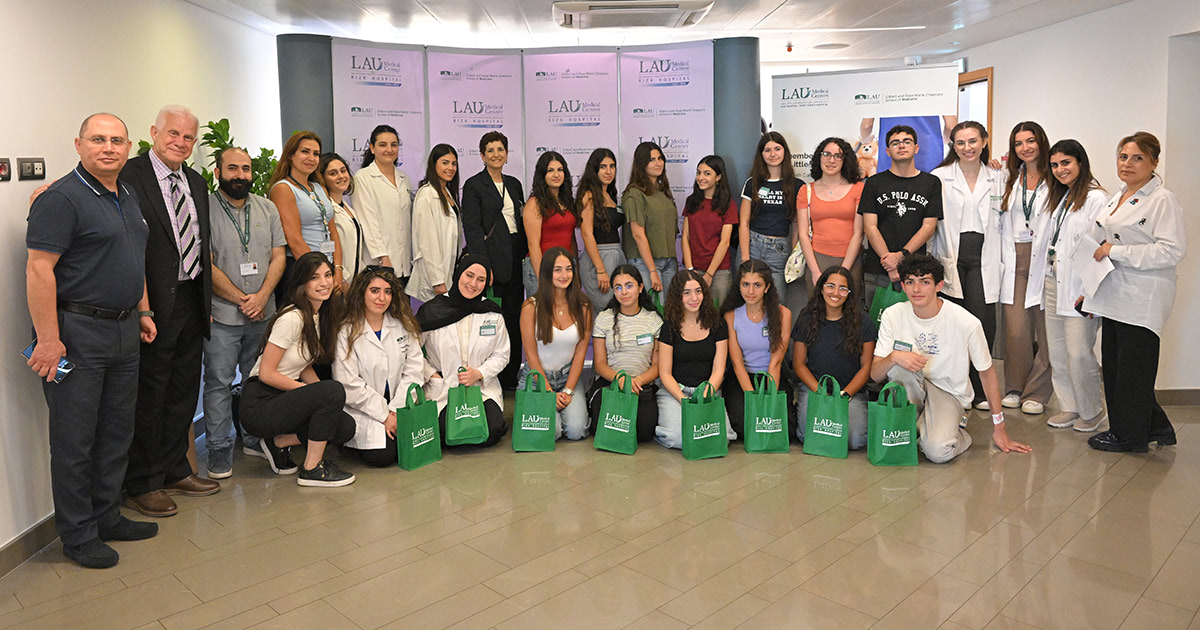Beyond the Counter: High Schoolers Deep Dive into the Profession of Pharmacy at LAU’s Summer Camps
High-school students join LAU’s summer camp and redefine their understanding of a pharmacist’s role through hospital excursions, in-house laboratory experiments and retail pharmacy simulation labs.
A common misconception about a pharmacist’s role is simply to fill prescriptions. During LAU’s two-day summer camp, high-school students discovered that a pharmacist plays a central role in patient care and is essential to ensuring safe medication use, preventing harmful drug interactions and is responsible for counseling patients on how to use their medication safely and effectively.
“We are working to break the stereotype that pharmacists operate primarily behind the counter,” said Dr. Lamis Karaoui, clinical associate professor of pharmacy and assistant dean for Student Affairs, by exposing the students “to different pharmacy career paths, to what we do at LAU and how we teach and practice pharmacy at our medical centers.”
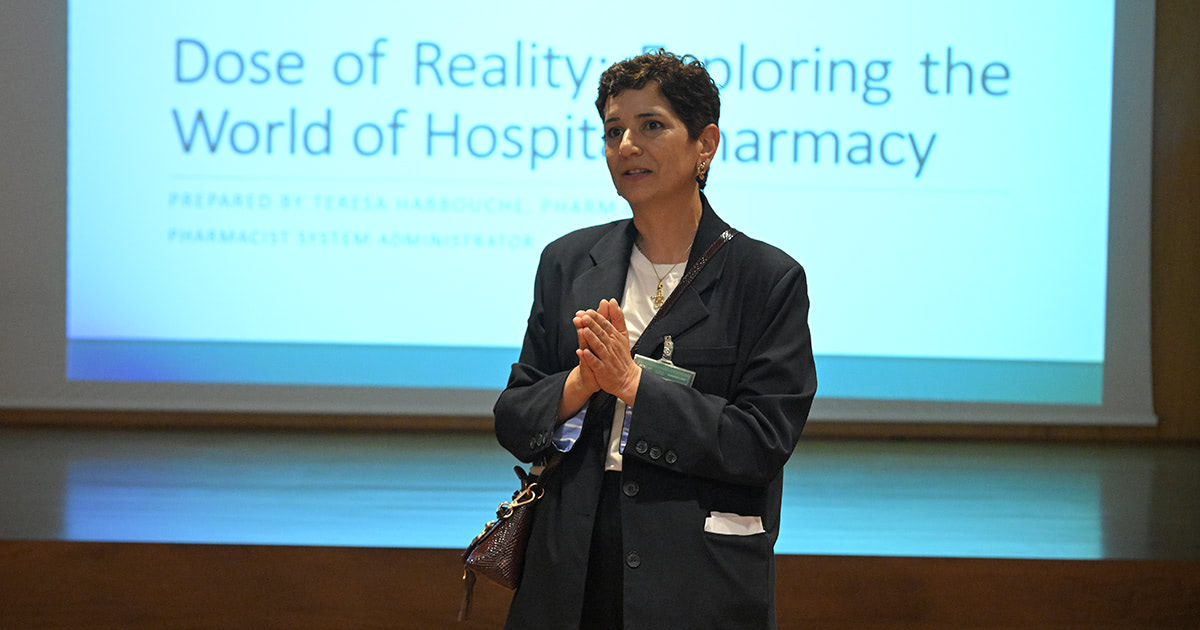
During the camp hosted on the Byblos campus and LAU Medical Center–Rizk Hospital on June 30 and July 1, 2025, students learned about the School of Pharmacy’s curriculum and programs, the lifecycle of drug approvals, cardiopulmonary resuscitation (CPR), medication safety myths, and much more.
“Through an engaging, hands-on activity on the lifecycle of drug approvals, high schoolers explored how medicines are discovered, tested, and brought to market, highlighting the critical role pharmacists play in this process,” said Dr. Maya Zeineddine, a clinical associate professor at the school.
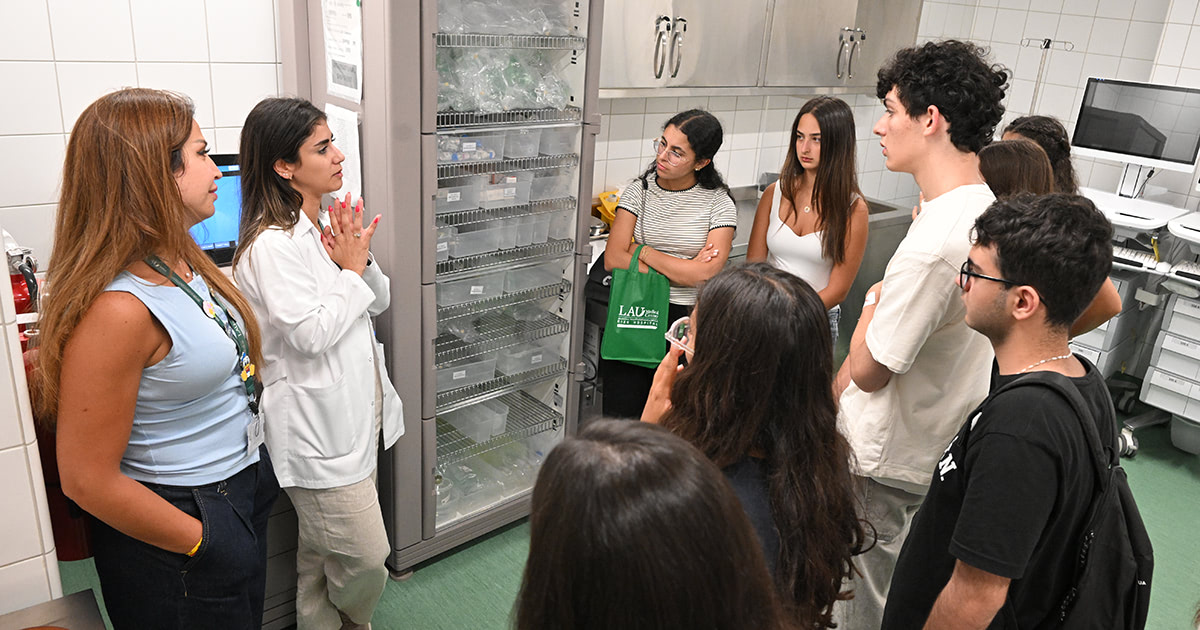
A site visit to the medical center on the first day of the camp provided them with an overview of the many hats a pharmacist wears and the wide range of prospective careers in the profession.
“We are medication experts, safety guardians, clinical research partners, and patient-care collaborators,” Dr. Teresa Habbouche (PharmD ’20), pharmacy system administrator at the medical center, told the high schoolers in her lecture on hospital pharmacy, pharmacy services, safety tools and technology. “We are the hidden force behind patient recovery.”
Dr. Katia El Harake (PharmD ’21), a clinical pharmacist at the medical center, informed them about the vital role of clinical pharmacists in a hospital. From evaluating patients’ medications for effectiveness and safety, managing illnesses, and recommending additional therapies, she said, “we engage in collaborative patient care. We act as the drug information resource for all healthcare providers of the multidisciplinary team.”
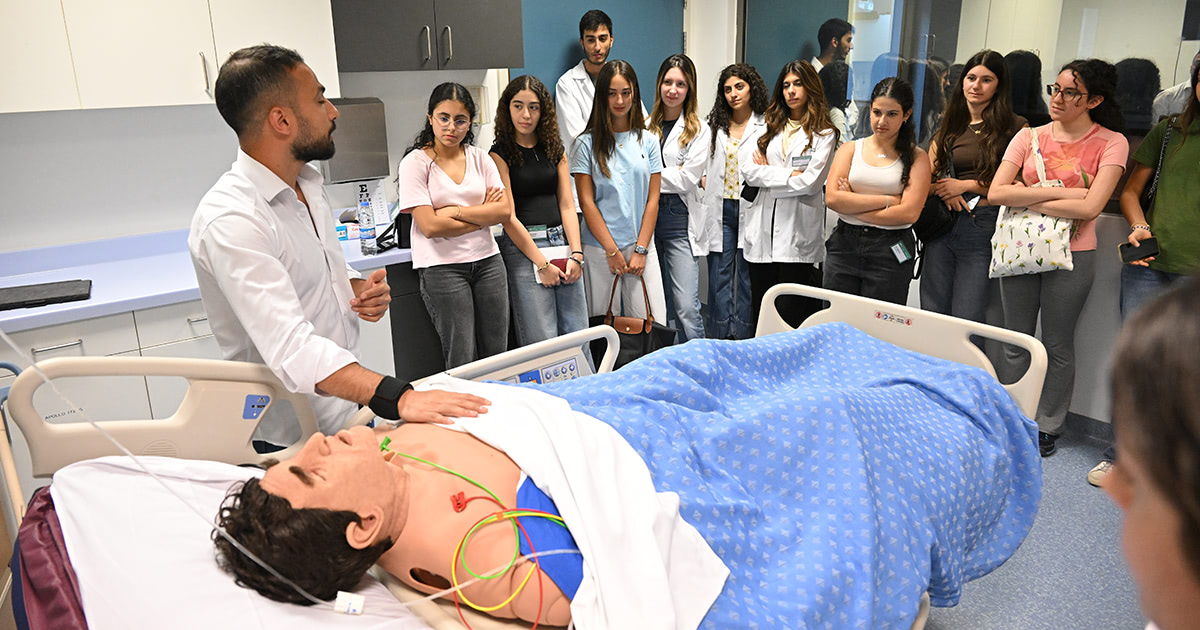
Whether students choose to specialize in infectious diseases, bioinformatics, internal medicine, ambulatory care, inpatient and outpatient clinics, critical care, clinical pharmacogenomics, pediatrics, or oncology, among many others, she added, they “would be directly improving patient outcomes and helping people every day.”
The camp also offered a dynamic, hands-on experience throughout. Students toured LAU’s Byblos campus, explored its cutting-edge facilities, engaged in interactive games with faculty and pharmacy students, crafted lipsticks in a lab and stepped into the role of retail pharmacists through simulations in LAU’s dispensing lab.
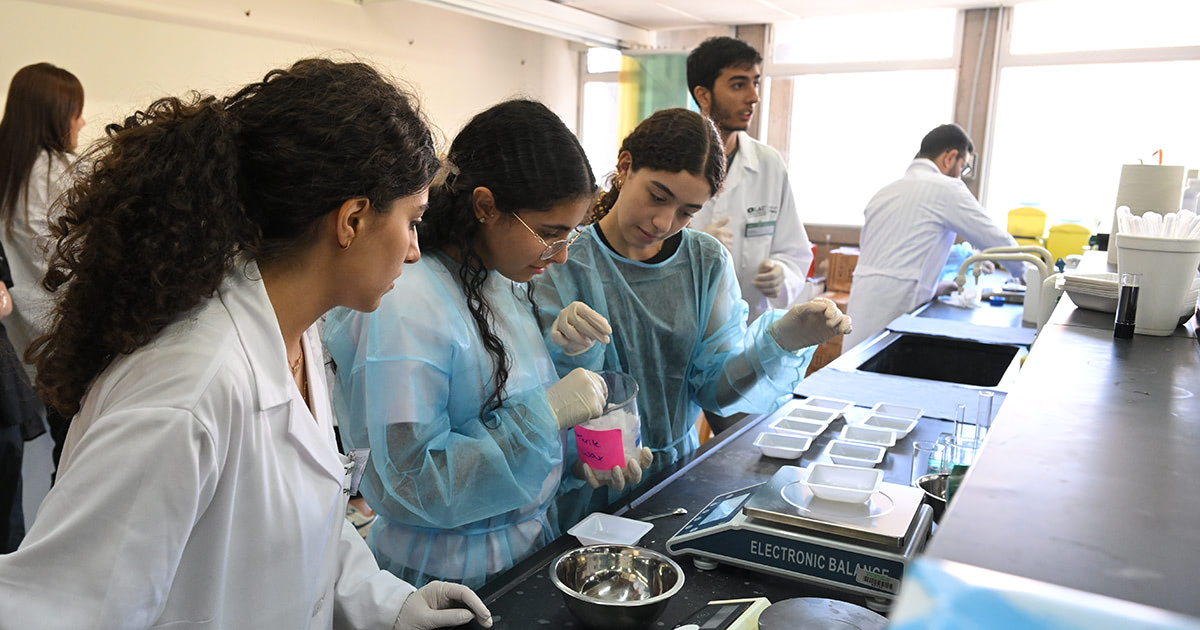
LAU pharmacy graduates were on hand to guide the high schoolers through their two-day experience. “The inherent value in this type of activity is that it bridges the gap between high-school education and their choice of future career,” said Carole Bejjani (BS ’24). “It sparks their curiosity about pharmacy, which is exactly what we hope to achieve.”
Helping out in the camp, she added, allowed her to revisit and apply many of the skills she had acquired at LAU, whether it was soft skills such as communication and teamwork, or technical skills such as the clinical education skills she developed throughout her five years of pharmacy.
The effort placed in the camp was hard to miss, and the participating students echoed that sentiment wherever they went.
“I really enjoyed how interactive all the activities were and how helpful all the students and the teachers were. The community here is very welcoming,” said Angela Jabbour, a grade 11 student who came all the way from Amman. “It motivated me to come back to Lebanon to study and reminded me of all the possible futures I could have here.”
For another grade 11 student, Georgio El Khoury, the most valuable aspect was being able to sneak a peek into the world of hospital pharmacy and learn more about how pharmacists interact with patients. “Education really flowed throughout the hospital,” he explained.
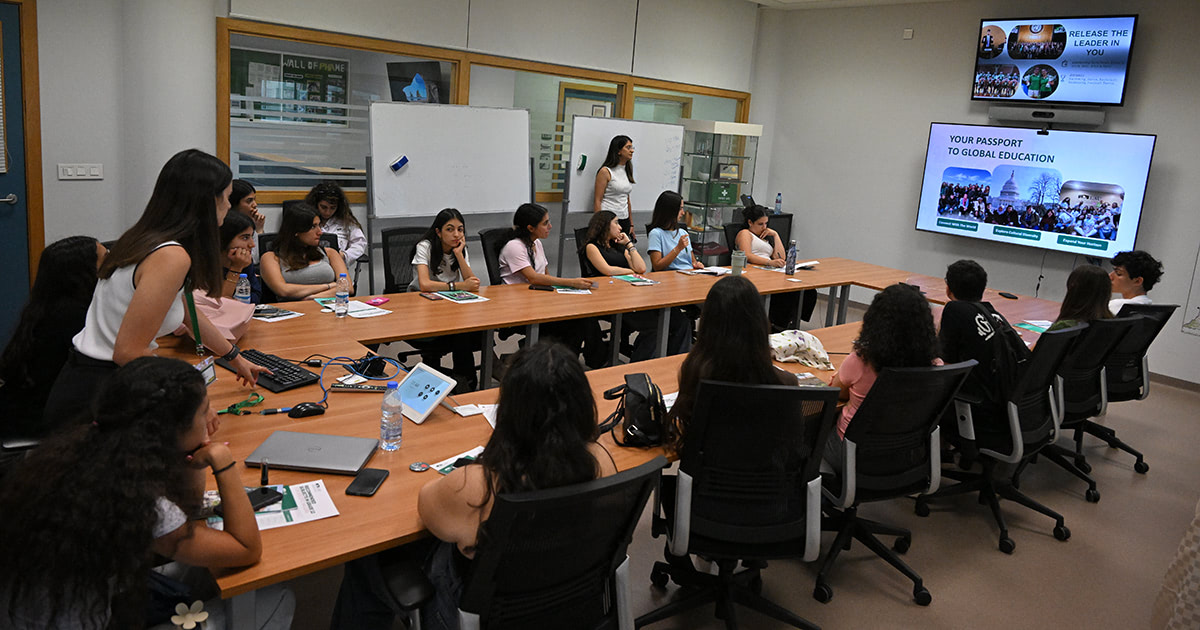
To familiarize them with the academic status LAU’s School of Pharmacy, a representative from Student Enrollment and Management Rachel Khoury met with the high schoolers to explain the significance of its NECHE accreditation—one that is held by Harvard, Yale, MIT, and Boston University—and by the Accreditation Council for Pharmacy Education—the only pharmacy school accredited outside the US.
The young camp participants walked away with a clearer picture of what to expect should they decide to major in pharmacy, realizing above all that the profession entails “much more than dispensing medications or selling medications—it’s about caring for people, innovating and shaping the future of healthcare,” said Dr. Naser Z. Alsharif, dean of the School of Pharmacy.
